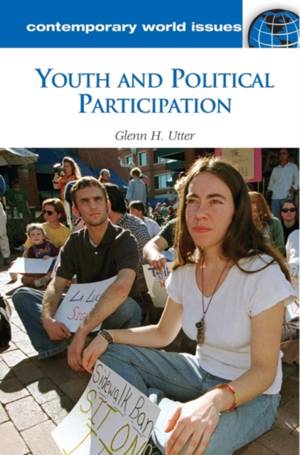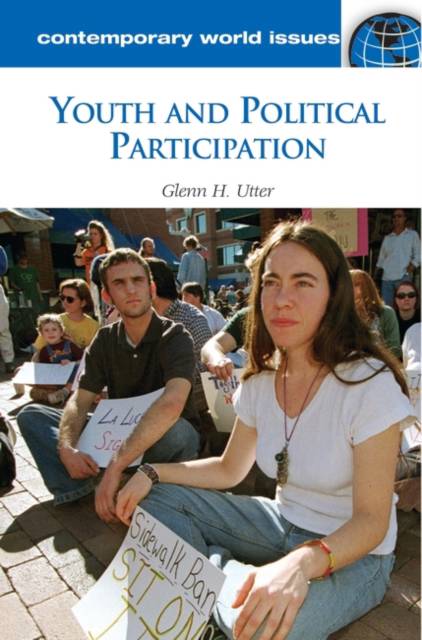
En raison d'une grêve chez bpost, votre commande pourrait être retardée. Vous avez besoin d’un livre rapidement ? Nos magasins vous accueillent à bras ouverts !
- Retrait gratuit dans votre magasin Club
- 7.000.000 titres dans notre catalogue
- Payer en toute sécurité
- Toujours un magasin près de chez vous
En raison de la grêve chez bpost, votre commande pourrait être retardée. Vous avez besoin d’un livre rapidement ? Nos magasins vous accueillent à bras ouverts !
- Retrait gratuit dans votre magasin Club
- 7.000.0000 titres dans notre catalogue
- Payer en toute sécurité
- Toujours un magasin près de chez vous
Description
This comprehensive reference examines the history and importance of youth participation in politics, suggests reasons for their disengagement, and discusses efforts to increase the interest of young voters in the political process--a process in which they could be a controlling factor.
Surveys indicate that those under the age of 30 consistently score the lowest on factual questions about politics, and young people are the least likely to engage in political activity online despite being the age group most likely to use the Internet. Many political researchers and activists are justifiably concerned, linking the low level of political participation among American youth to the overall health of our democratic system. Youth and Political Participation: A Reference Handbook sheds light on this important subject, identifying and discussing factors that have influenced youth political participation in the past and those that play a role today, including the mass media, political parties, interest groups, and individual attitudes toward political engagement. The book also provides historical perspective by addressing the early years of the Republic, the protest politics of the 1960s, the campaign for the 18-year-old vote, and the results of the 26th Amendment granting that right.Spécifications
Parties prenantes
- Auteur(s) :
- Editeur:
Contenu
- Nombre de pages :
- 304
- Langue:
- Anglais
- Collection :
Caractéristiques
- EAN:
- 9781598846614
- Date de parution :
- 12-09-11
- Format:
- Livre relié
- Format numérique:
- Genaaid
- Dimensions :
- 155 mm x 231 mm
- Poids :
- 544 g

Les avis
Nous publions uniquement les avis qui respectent les conditions requises. Consultez nos conditions pour les avis.






